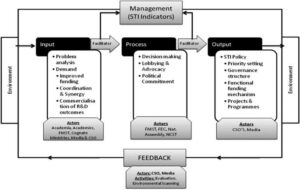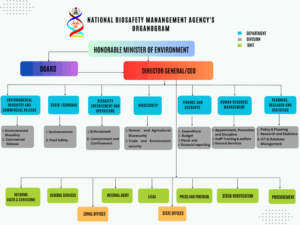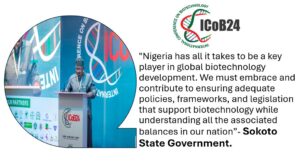Back to: Botany 400 Level
Welcome again, Afrilearn Superstar! I’m really glad to have you here today—your dedication is truly inspiring. Today’s lesson is all about biotechnology policies in Nigeria and international frameworks. This might sound technical at first, but don’t worry, we’ll break it down together in a way that connects directly to what you see around you in agriculture, food, and the environment. Let’s get into it!
Biotechnology policies in Nigeria and international frameworks
Think about this: Imagine you’ve developed an amazing new GM crop in your university lab—maybe a cassava that can resist pests and give higher yield. You’re excited to help farmers, but before anyone can plant it, the government steps in and says, “Let’s test it, regulate it, and make sure it’s safe for everyone.” That’s exactly what biotechnology policies and frameworks are meant for—to guide how biotech is used responsibly and safely.

Policies are like house rules. They help keep things in order. When it comes to biotechnology, policies in Nigeria and across the world help ensure that new technology benefits people while also protecting health, the environment, and traditional knowledge.
Biotechnology Policies in Nigeria
- National Biotechnology Development Agency (NABDA)
This agency is Nigeria’s main institution promoting the safe use of biotechnology. NABDA helps develop biotech research, supports innovation, and works with farmers and industries to apply biotech solutions in health, agriculture, and the environment.
- National Biosafety Management Agency (NBMA)
While NABDA promotes biotech, NBMA acts as the safety watchdog. It regulates GMOs and other biotech products to ensure they don’t harm humans, animals, or the environment. NBMA enforces the National Biosafety Act (2015), which outlines how GMOs should be tested, labelled, and monitored in Nigeria.
- Biosafety Guidelines and Labelling
In Nigeria, GM foods must be labelled properly. This ensures that consumers know what they’re eating and can make informed choices. NBMA also makes sure that imported or locally produced GMOs go through risk assessments.
- Public Participation
The Nigerian policy system encourages public awareness and community involvement. Before releasing any GM crop, NBMA holds public consultations to get input from local communities and experts.

International Biotechnology Frameworks
Nigeria doesn’t act alone. The country is part of global frameworks that guide safe and ethical use of biotechnology:
- Cartagena Protocol on Biosafety (under the Convention on Biological Diversity)
Nigeria is a party to this protocol. It sets the standard for handling, transporting, and using living modified organisms (LMOs). It’s like an international agreement that says, “Let’s share information and handle GMOs with care.”
- Nagoya Protocol on Access and Benefit-Sharing
This protocol ensures that when genetic resources (like seeds or medicinal plants) are used in research or biotech, local communities benefit fairly. For example, if a plant from a Nigerian forest is used to develop a medicine, the community should get credit or compensation.
- Codex Alimentarius
This is an international food safety standard by the FAO and WHO. It gives guidelines for evaluating GM food safety and labelling, which Nigeria often uses as a reference.
Let’s say a company wants to introduce Bt maize into Nigeria. They must first apply to NBMA. The agency will review the scientific data, environmental impact, and possible health risks. The public will be invited to give their views. Only if all checks are passed will the maize be approved for planting or consumption. If a similar process is happening in Ghana or South Africa, the Cartagena Protocol makes sure they share information and follow global standards too.
Why These Policies Matter
- Protects Human and Environmental Health
Policies ensure that no biotech product is released without proper testing.
- Promotes Trust and Transparency
When rules are clear and followed, people trust the technology more.
- Supports Innovation Safely
Researchers and companies can work freely, knowing there’s a guide to follow.
- Aligns Nigeria with the World
Being part of international protocols allows Nigeria to collaborate and trade globally with confidence.

Summary
- Nigeria has strong policies like the Biosafety Act, enforced by NBMA, and promotes innovation through NABDA.
- GMOs in Nigeria are regulated for safety, and labelling is required for transparency.
- Nigeria is part of international agreements like the Cartagena and Nagoya Protocols, which promote safe, fair use of biotechnology globally.
- Policies help balance innovation with public health, environmental safety, and community rights.
Evaluation
- What role does NBMA play in Nigeria’s biotechnology policy?
- Why is labelling important when it comes to GM foods?
- Mention one international framework Nigeria is part of and its purpose.
Understanding how science is guided by rules and ethics is powerful. It shows that you’re not just learning to pass exams—you’re preparing to lead, influence policies, and innovate responsibly. Keep pushing forward, because the future of Africa’s agriculture, health, and environment could be shaped by minds like yours. See you in the next lesson!
